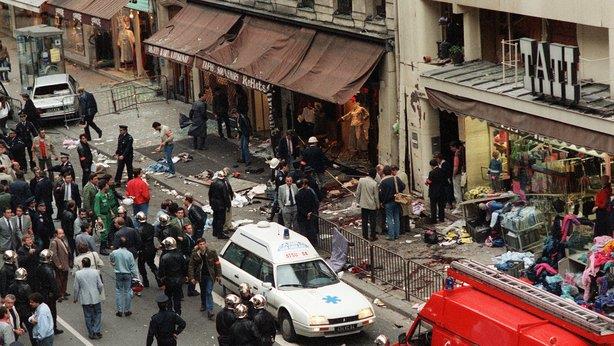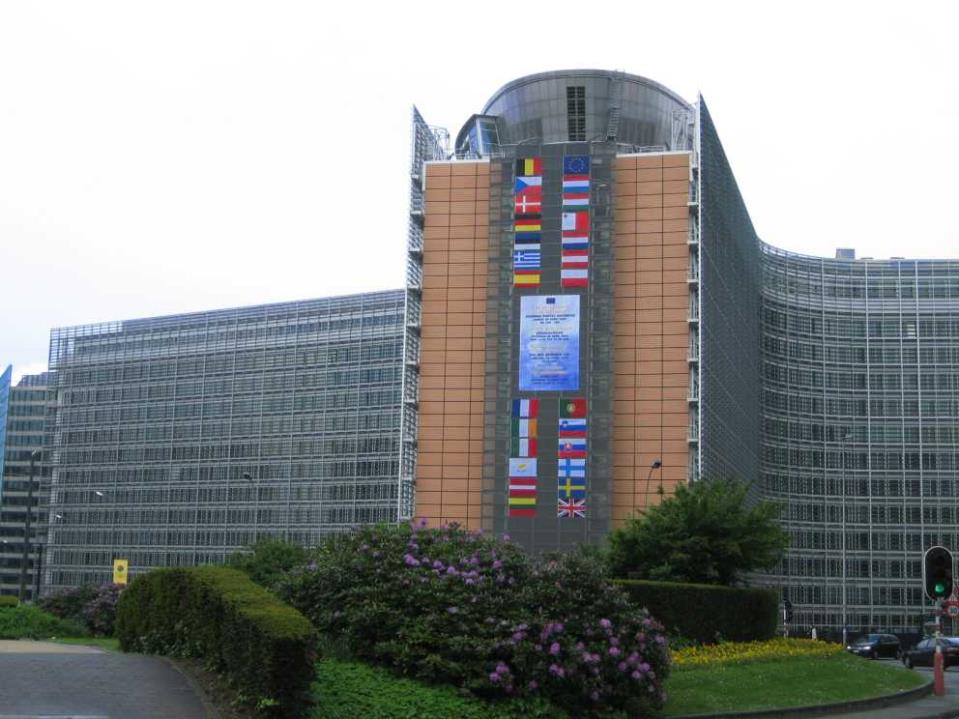Radical youths in Europe
The recent terrorist attack in Paris sparked public outrage from all over the world, and from all religions. It was found that a number of the men who carried out the attack were European citizens, carrying European passports. Asked about whether the stagnant EU economy and high unemployment was the main driver of such a high number of radicalised youth, Mrs Mizzi said:
“This is not the only factor, it is a cocktail of factors. We are dealing with human nature and human people, what affects you is different to what affects me.
A person who is unemployed might be able to live with the fact that they are unemployed. Others find being unemployed, coming from a deprived background, belonging to a minority and feeling ignored, an unacceptable situation. They might find organisations like Isis, who will give them the training and philosophy, attractive.
I do believe the more activities you involve young people, such as academic, training, employment or sports, the more you keep them doing something healthy. As a result, they will be less inclined to look for someone else for a mentor or an attraction. Unfortunately some mentors and attractions are Isis, which is pretty dangerous.

So I believe in culture and education, especially since we have realised that a lot of these terrorists are home grown. They are European citizens but something has gone wrong, some way the system has failed them. Obviously you are always going to have people escape from the net. You can have a perfect system where youths are given all the opportunities that they want, but still you will get some of those renegades who are going to be terrorists regardless. We must at least try and ensure that we give our youth as much healthy activities, academic and not, inside schools and not, as much as possible.”
Turning back to the financial crisis, Mrs Mizzi added “I do think the recent crisis that we have been going through have hit young people.”

“They have a lot of time to think, and see things on the internet. They find these people who are training with guns, uniforms, camouflage and for some people that is like a James Bond movie. They thing about how exciting this all is, and that’s where it starts. Otherwise why would they leave Europe to go to Syria? “
“There must be something that is pushing these youths away from a European standard or values to somewhere else. It is those values we have to strengthen.”
Schengen
Mrs Mizzi described the Schengen agreement as one of the pillars of democracy. A number of countries have suspended their participation within the Schengen agreement, due to fears that terrorists or radicalised individuals are slipping through EU Member States once they enter EU territory.
Pressed about her views on Malta’s suspension of the Schengen agreement, Mrs Mizzi said:
“I think we have to find the balance between this valuable freedom which we all want to embrace and the security which citizens feel, or don’t feel. When you look at what happened recently, together with the feedback from citizens and articles from Facebook and blogs, a lot of people think that if there is more border control they feel more secure.”
“I don’t believe that if we close Schengen or suspend it, it’s going to make a difference really. I think the terrorists who want to make trouble will find a way to make trouble.”

“On the other hand if the citizens in general are feeling a bit more secure knowing that their borders are somehow being controlled then it is something we must consider as well. I do hope that this is something temporary and I do hope that we do not come to a time where Schengen is actually abolished because I feel that it one of the achievements of the EU.”
“At the moment you have to balance it with the way citizens are feeling. Governments have the duty to listen to their citizens.”
The use of social media by public officials
Recently local guidelines have been issued on the use of social media by public officials, excluding political appointees. These are a set of guideline which outline appropriate and inappropriate ways of using ones social media account, without embarrassing themselves or the government.
On the subject of social media, Mrs Mizzi said:
“Like everything else social media can be used and abused, so it really comes from you. One must weigh the integrity of how much you value your position to ensure you don’t embarrass yourself, which is very important, and that you don’t embarrass anybody else.”

“Unfortunately we also have to acknowledge that sometimes people put quite innocent comments on Facebook, such as politicians and public persons, then it becomes twisted into something which is really not on. It is a very fine line. I personally do not put anything on Facebook that I don’t want people to see.”
“So whatever I put on Facebook is because I don’t mind people reading or seeing, that also goes for my photos. I have my political page where nothing personal goes in it, then I have my personal page.”
“Again, if people, who we know exist, will take the opportunity to even interpret today ‘is a beautiful day’ and turn it into something nasty, it has happened, it is happening and it will happen. Those things you cannot really control, but then it is up to the public person to ensure that what they understand how something looks or sounds on Facebook, they must ask: is this going to embarrass me? Is it going to embarrass my family? My political party?
They have to understand that when a person puts something on Facebook, such as a minister, they are wearing the hat of a minister, and they have to behave as a minister. This counts for anyone person in certain positions, such as a chairman, politician or company director.”

The Economy
Some critics have argued that Malta’s economy is growing at an unsustainable rate, and that low levels of exports and a dwindling manufacturing sector could leave Malta in a vulnerable position. Asked about this Mrs Mizzi explained:
“The European Commission is predicting that for the year 2015 the Maltese economy will have grown by 4.3%, the second highest among European Union nations after Ireland. This would be the largest growth in the past 10 years. One has to see this in light of the fact that the average growth among European Union members is of 1.9%. These things do not happen by coincidence, so much so that for the next two years the Maltese economy is expected to continue growing although at a lower rate, that of 3%, and thus it is not just to say that it is “accelerating at an unsustainable rate”. This is because one needs to consider the rate at which this growth is happening.
One also has to be careful of the context in which it is said that “low levels of exports and manufacturing leave Malta in a vulnerable position.” The point of departure is that consumption has increased significantly, and this is because income has increased and the population has more available cash to spend. One has to consider as well the considerable increase in the labour force, the increase in salaries and the low rate of inflation. When one then takes this actual fact (increase in imports because of the increase in consumption) one sees that the comparison between manufacturing and exportation on one hand and importation on the other is not exactly just.”

Turning to the issue of corporate taxation, and how Malta stands to lose the flexibility to set multi-national corporate tax rates itself, at a competitive rate, she added:
“As far as taxation at EU level is concerned, I have always been in favour of transparency, coordination and exchange of information including that on an automatic basis. I will always agree with recommendations and fully support measures targeting abuse, enhancing transparency and addressing instances of harmful tax competition in the area of corporate taxation as promulgated by international standards.
At the same time, I am not in favour of a move towards an EU wide basis to introduce tax convergence and harmonisation in direct tax matters. It is important to keep in mind that small economies do not face the same economic realities and domestic market size, geographical proximity or resources as big once and therefore they need a certain latitude in tax policy otherwise a one-size-fits all approach can put them into a disadvantaged position. I also have reservations on the mandatory Common Corporate Consolidated Tax Base provisions and a Financial Transaction Tax. In this context, I have voted against this Report.

I have strong reservations with the suggestion of having mandatory CCCTB provisions before conducting a full economic impact assessment. The CCCTB could potentially lead to an increase in compliance costs, loss of fiscal autonomy and last but not least increased costs for SMEs. In fact, there is logic behind the fact that mainly larger Member States are pushing for the CCCTB proposals and the reason is that smaller Member States will lose their competitive advantage over bigger economies by not being able to keep a lower effective corporate tax rate.
CCCTB might prove to be useful for larger Member States, big economies and multinationals companies operating cross-border on the internal market, but one should keep in mind that most businesses established in Malta are SMEs that would have to pay the costs and administration fees of the CCCTB without having any benefits out of it. Therefore, before making up my mind on the CCCTB, I need to be well aware of what the proposal will entail and the implications that might have on the economy and on local businesses.”
Ties between the EU and China
On the topic of China, and its relevance from an EU context, Mrs Mizzi said: “China has emerged as an important player on the world scene and a key trade and investment partner for the EU and for many European Member State including Malta. It is a well-known fact that, many countries are exploring the possibilities to build commercial relationship with China and even more to attract Chinese investments. Even the European Union, realising the potential of the EU-China investment, is currently negotiating a comprehensive Investment Agreement with China.

In the globalised world we are living, it is in the interest of Maltese business to have a sound and balanced economic relationship with China.
There are indeed several geopolitical and socio-political considerations that need to be taken into account, but this doesn't mean that we have to ignore Chinese investments, instead we have to strive to improve policy conditions for economic integration and to avoid frictions and disputes.
We need to strengthen the strategic partnership with China, but on the condition that trade between both sides is based on a fair global trade system and a level playing field among all players. We should have a constructive approach towards China, whilst we also need to be just in the areas where deficiencies are identified.”